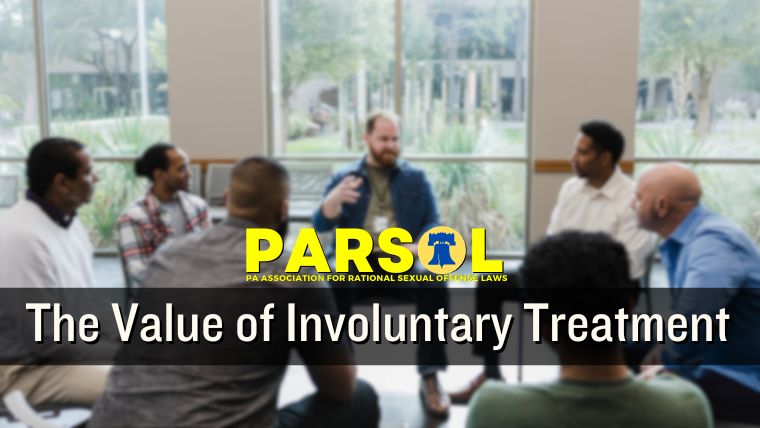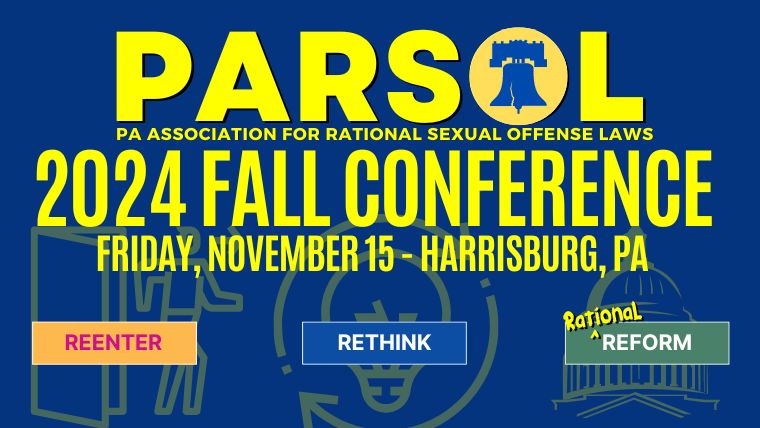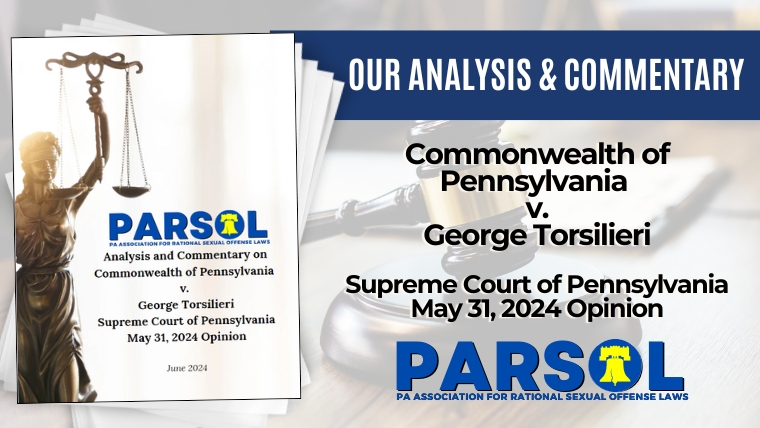Sometimes, the Commonwealth of Pennsylvania hands us just what we need to make our case for rational sexual offense laws, and this year was a big year for that kind of thing. So… thanks, Pennsylvania government!
Pennsylvania Task Force on Child Pornography (TFCP)
The Pennsylvania Task Force on Child Pornography (TFCP) was established by Act 53 of 2021 by the Pennsylvania General Assembly. Comprised of legislators, law enforcement officers, prosecutors, victim advocates, and psychologists, the TFCP examined the sentencing of crimes related to the offense of child pornography [18 Pa.C.S. § 6312], reviewed surveys and data analyses, and collected information from professionals in the field. After a year-long review, the TFCP released its final report on Sept. 28, 2022, making five recommendations, listed at right.
In response to the report, Pa. State Senator Judy Ward [R-30] introduced SB186: “Updating Pennsylvania’s Statutes to Fight Exploitation of Children.” According to the Senator’s Memorandum, “[t]his legislation amends Title 18… of the Pa. Consolidated Statutes and Act 197 of 2004… by replacing the term ‘child pornography’ with ‘child sexual abuse material.’ ” We would also suggest that 18 § 6312, “Sexual Abuse of Children,” be renamed “Child Sexual Abuse Materials” to reflect the nature of the crime more accurately.
Report Release and Findings
The data consistently shows, across the board, that Persons Forced to Register (PFRs) are a low risk to society. The TFCP proposed, “low-risk offenders should receive low-intensity consequences and treatment instead of high-intensity consequences and treatment because the wrong matching can increase the risk of recidivism.” Furthermore, “Across any type of crime, an increase in age reduces the risk of recidivism. Treatment and community supervision also reduce the risk of recidivism as do the presence of protective factors.” These factors include employment, housing, constructive social and professional support, and the development of healthy coping and problem-solving skills. Protective factors are prosocial (e.g., employment, housing, constructive social and professional support), good problem-solving, etc.
Unfortunately, rather than announce the report’s publication, it was quietly shared on the PCCD website on a page initially used to publish technology and financial audits. We regret not finding this report sooner and strongly suggest the Commonwealth announce and publish reports openly.
During the period of time evaluated by the TFCP, there were approximately 385 new criminal cases filed during this period. Regarding reoffense rates, the studies showed that less than 4% were rearrested during one year, and less than 10% were rearrested within ten years. The report adds, “Stated conversely, there was no recidivism at one year for 96.2% of these offenders and no recidivism at three years for 90.5% of these offenders.”
Pennsylvania Department of Corrections 2022 Recidivism Report
Researchers, conscientious individuals, advocacy organizations (like PARSOL!), and occasionally the media have pushed back against the counterfactual stance that persons convicted of a sexual offense are at a “dangerously high risk of reoffending.”
The most recent example of this comes from the Pennsylvania Department of Corrections in a report released in November 2022, “Recidivism 2022 Report,” which stated, “Property crime offenders have the highest recidivism rates. ‘Sex offenders’ have the lowest recidivism rates”.
According to the report, The PA DOC defines recidivism calculation as: “using the first re-arrest or re-incarceration after each release.” It includes technical violations (such as missing an appointment), committing a new crime while on parole, or reconviction of the same or a different crime. Therefore, rates would appear lower if one looked only at re-arrest for the same crime category. Registry advocates frequently ignore this fact when claiming “high re-offense” rates.
Furthermore, the study shows that individuals who are unemployed for one year after release from prison have a higher recidivism rate (72.8%) than those reentrants employed to some degree within the first year after release from prison (57.2%). Against this backdrop, consider this: many organizations openly advertise that they hire people with criminal backgrounds (including felony convictions) – except those convicted of a sexual crime.
Pennsylvania Judiciary Committee Hearing – September 12, 2023
In March 2023, more than 100 PARSOL Advocates members wrote to House Judiciary Chairman Tim Briggs about HB77, a bill imposing residency restrictions on certain persons forced to register under PA SORNA/Megan’s Law. The e-mails and legislative visits worked. Chairman Briggs called a public hearing, which was held Sept. 12, 2023. He invited two panels of expert witnesses, including the ACLU of PA, two expert psychotherapists, the executive director of the Pennsylvania Sentencing Commission, and even two representatives from the Pennsylvania District Attorney’s Association. He also included PARSOL’s Memo/Talking Points on the subject in the committee materials for the day. Each and every witness said the same thing: Establishing residency restrictions is an ineffective means of protecting communities, families, and children. This testimony was supported by swaths of evidence that also can be applied to the registry in general.
Conclusion
We continue to be grateful for those who use their expertise to support the argument that ‘sex offender’ registries are irrational and should be abolished… (even if that’s not the argument they think they’re making at the time!)




